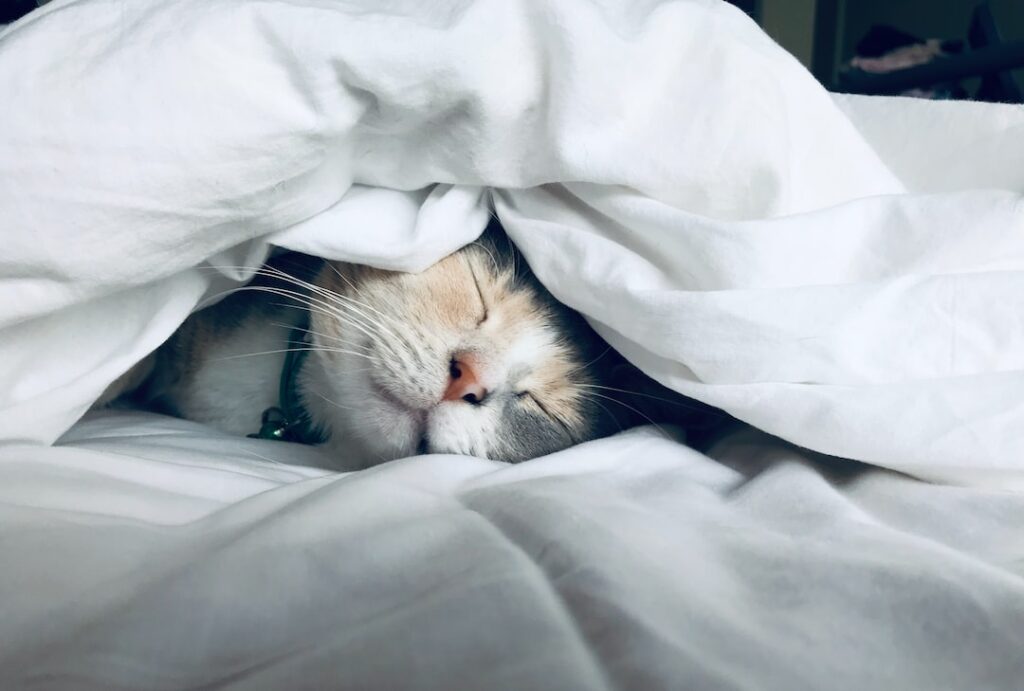This article explores the connection between ADHD and sleep, discussing the impact of sleep disorders on individuals with ADHD, common sleep disturbances, the ADHD effects of sleep duration, treatment options for sleep problems, ongoing research, and frequently asked questions.
Understanding the Link Between ADHD and Sleep
The relationship between ADHD and sleep disorders is complex and multifaceted, with ADHD often having an effect on sleep. Lack of sleep can have a profound impact on individuals with ADHD, leading to a range of physical illnesses, behavioral issues, and mood changes. For example, insufficient sleep can contribute to increased irritability, difficulty concentrating, and impulsivity, all of which are core symptoms of ADHD. Furthermore, sleep deprivation can exacerbate the symptoms of ADHD, making it more challenging for individuals to manage their condition effectively.
In addition to the intrinsic challenges of ADHD, individuals with this condition often face disruptions in their sleep patterns due to circadian rhythm disorders, frequent consumption of caffeinated beverages, the use of ADHD medications, and alcohol consumption, all of which can interfere with their ability to achieve restful sleep. For instance, the stimulating effects of caffeine can make it difficult for individuals with ADHD to fall asleep, while alcohol can disrupt the continuity of their sleep, leading to fragmented rest. These factors collectively contribute to the high prevalence of sleep disturbances in individuals with ADHD.
Moreover, comorbid conditions such as anxiety, depression, and Restless Legs Syndrome can further complicate the sleep experiences of individuals with ADHD. For instance, Restless Legs Syndrome can cause uncomfortable sensations in the legs, leading to difficulty falling asleep and disrupted sleep throughout the night, exacerbating the ADHD effect on existing sleep challenges. Therefore, the interplay between ADHD and various sleep disorders and disturbances underscores the importance of a comprehensive approach to addressing the sleep needs of individuals with ADHD.

Common Sleep Disorders Associated with ADHD
Electronic devices, such as smartphones and video games, have been identified as significant contributors to the challenges individuals with ADHD face when trying to fall asleep. The stimulating nature of these devices, combined with the exposure to blue light, can disrupt the natural wind-down process, leading to delayed sleep onset and disrupted sleep patterns. For instance, the engaging content on smartphones or the excitement of video games can keep individuals mentally alert and make it harder for them to transition into a state of relaxation conducive to falling asleep.
Moreover, the prevalence of obstructive sleep apnea and Restless Legs Syndrome in individuals with ADHD further exacerbates their struggles with obtaining restful sleep. Obstructive sleep apnea, characterized by pauses in breathing during sleep due to airway obstruction, can lead to fragmented sleep and daytime sleepiness. Similarly, Restless Legs Syndrome, marked by uncomfortable sensations in the legs and an uncontrollable urge to move them, can disrupt sleep onset and maintenance, affecting the overall quality of sleep experienced by individuals with ADHD.
This underscores the intricate interplay between sleep and ADHD symptoms, as addressing sleep-related issues can have a positive impact on the overall well-being and functioning of individuals with ADHD. Understanding the multifaceted ADHD effects on sleep is crucial in developing comprehensive strategies to address this issue.
Sleep Disturbances
Adults with ADHD not only have trouble falling asleep but also experience frequent awakenings during the night, leading to disrupted and poor-quality sleep. The ADHD effects on sleep can have significant implications for the overall health and functioning of individuals with ADHD, as the impact of sleep disturbances on their daily lives and cognitive abilities can be profound.
For instance, poor sleep quality and duration have been associated with increased levels of daytime sleepiness, which can exacerbate the existing symptoms of ADHD, such as inattention and hyperactivity, consequently leading to a decline in overall daytime functioning. By recognising and addressing sleep disturbances in individuals with ADHD, healthcare providers can play a crucial role in improving their quality of life and overall functioning.
Studies on the ADHD effects on sleep have revealed that adults struggle to fall asleep easily, experience restless sleep, and have difficulty waking up feeling refreshed. Inadequate sleep can contribute to difficulties in sustaining attention, regulating emotions, and managing impulsive behaviors, all of which are core symptoms of ADHD.

Treatment Options for ADHD-related Sleep Problems
When it comes to addressing ADHD effects on sleep, there are various treatment options available to help manage these issues and improve the overall quality of sleep for individuals with ADHD. One common approach involves the use of stimulant-class medications, which can aid in regulating sleep patterns and promoting better rest. For instance, these medications can help individuals with ADHD fall asleep more easily and stay asleep throughout the night, ultimately contributing to improved sleep quality and duration.
In addition to stimulant-class medications, alternative options such as Benadryl, melatonin, and certain antidepressant medications have also been considered as part of the treatment plan for ADHD-related sleep problems. These medications can play a role in addressing specific aspects of sleep disturbances, such as difficulty falling asleep or maintaining a consistent sleep schedule, thereby enhancing the overall sleep experience for individuals with ADHD. For example, melatonin supplements have been found to be particularly effective in regulating the sleep-wake cycle in individuals with ADHD, contributing to more restful and rejuvenating sleep.
Implementing practical interventions for problems waking up can significantly impact the overall sleep quality for individuals with ADHD. For instance, using a two-alarm system or integrating sunset/sunrise-simulating lights into the sleep environment can help individuals wake up more easily and feel more refreshed. These interventions can be valuable in addressing specific challenges related to waking up, which are commonly experienced by individuals with ADHD, ultimately contributing to a more positive and restorative sleep experience. ADHD coaching can also benefit individuals with sleep-related issues, through the personalised strategies that best suit the individual. Therefore, it is important to consider a multifaceted approach to treatment that encompasses both medication-based interventions and practical strategies to address the complex nature of sleep disturbances in individuals with ADHD.

Frequently Asked Questions (FAQs)
- What are the common sleep disorders associated with ADHD in both children and adults? In individuals with ADHD, common sleep disorders include obstructive sleep apnea, Restless Legs Syndrome, and difficulties in falling asleep and staying asleep, which are often exacerbated by the use of electronic devices and other factors.
- How does lack of sleep affect individuals with ADHD in terms of physical illness, behavioural issues, and mood changes? Lack of sleep can lead to various physical illnesses, behavioural issues, and mood changes in individuals with ADHD, further exacerbating their existing symptoms and impacting their overall well-being.
- What are the effects of caffeine, ADHD medications, and alcohol on the sleep of individuals with ADHD? Caffeine, ADHD medications, and alcohol can interfere with the sleep patterns of individuals with ADHD, contributing to disrupted sleep and challenges in obtaining restful sleep.
- How do other conditions like anxiety, depression, and Restless Legs Syndrome impact the sleep of individuals with ADHD? Comorbid conditions such as anxiety, depression, and Restless Legs Syndrome can significantly impact the quality of sleep in individuals with ADHD, further complicating their sleep patterns and overall well-being.
- What role do electronics, such as smartphones and video games, play in affecting the ability of individuals with ADHD to fall asleep? Electronics, such as smartphones and video games, can impact the ability of individuals with ADHD to fall asleep, often leading to delayed sleep onset and disrupted sleep patterns.
- Can removing tonsils improve symptoms in children with ADHD and sleep-related breathing disorders? Yes, in some cases, the removal of tonsils has been found to alleviate symptoms in children with ADHD and sleep-related breathing disorders, highlighting the complex relationship between sleep and ADHD symptoms.
- What are the most common ADHD effect on sleep disturbances experienced by adults? Adults with ADHD commonly experience difficulties in falling asleep, restless sleep, and challenges in waking up feeling refreshed, all of which can significantly impact their daily functioning and well-being.
- What treatment options are available for ADHD-related sleep problems? Treatment options for ADHD-related sleep problems encompass a range of approaches, including the use of medications, behavioral interventions, and environmental modifications to improve sleep quality in individuals with ADHD.
- How does sleep duration impact the daytime functioning of children with ADHD? Shortened sleep duration is causally linked to poorer daytime functioning in children with ADHD, emphasizing the critical role of adequate sleep in managing their symptoms and overall well-being.
- What are the associations between sleep problems and risky driving, less physical activity, and other health behaviors in individuals with ADHD? Sleep problems in individuals with ADHD are associated with risky driving, less physical activity, and other health behaviors, highlighting the importance of addressing sleep disturbances as part of comprehensive ADHD management and care.

Be the first to comment